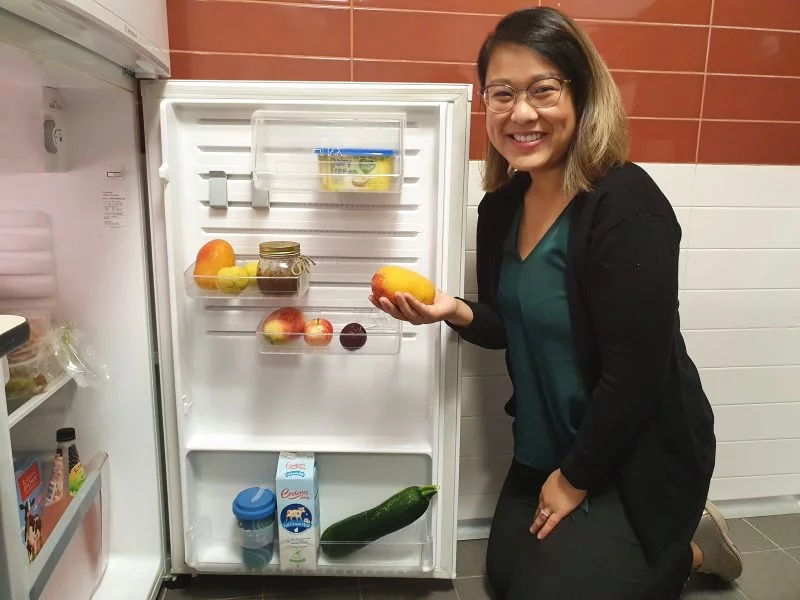Dietitians are definitely not food police and they don’t always eat spinach. But what do they actually do? During National Dietitians Week, we thought we’d get to know the new VisAbility Dietitian, Rachel.

Rachel comes from a family of health professionals. Her mum is a pharmacist, her dad works in a pharmaceutical company and her older sister is an occupational therapist. Her love of food started early on. When she’s not working at VisAbility, she’ll be following YouTube recipes to create different dishes and holding dinner parties for friends.
“I studied home economics at school because I’ve always liked playing around with food. Most dietitians enjoy cooking and I’m the same. I have a strong interest in Asian cuisine.’’
What is dietetics about?
Rachel was born in Singapore and went to school there, but always wanted to study a degree overseas. She enrolled at Curtin University (opens in new link) and completed a BSc in Nutrition and then a Master of Dietetics.
How would Rachel explain dietetics in its simplest form?
“Dietitians interpret the science of nutrition to improve diet and health and treat diseases and conditions by offering personal, practical advice,’’ she explains.
“I can tailor diet advice to people who have certain conditions. This could be high cholesterol, heart disease, cancer, gastrointestinal diseases and diabetes.’’
Rachel – VisAbility Dietitian
Once Rachel completed her studies, she started working for a private health firm with diabetes patients. Rachel’s broad background in both nutrition and dietetics has been really advantageous to our clients.
“As an accredited dietitian, I’m governed by an ethical code to ensure that I always work to high standards.’’
Rachel works with adults and children, but particularly enjoys working with youngsters.
“Toddlers can be picky eaters and it can be draining for parents to deal with their fads. I always advise parents to think about family eating habits. I encourage them to make mealtime enjoyable, by everyone eating together with no distractions, it’s far more relaxed.’’

Eat everything in moderation
As with any industry, there can be a few myths surrounding dietetics, eating and overall health and nutrition.
We’ve highlighted a few that Rachel feels are important to share.
- Don’t ever think a dietitian will judge you on what you eat. Be honest and open about your diet when you meet me. We all slip off the rails now and again and that includes myself.
- Discretionary food is a term used by a dietitian to describe junk foods. They are essentially ‘energy-dense’ but ‘nutrient-poor’. It’s food that is high in saturated fat or added sugars, high salt content or is low in fibre and unhealthy.
- Dietitians can provide you with meal plans, however it’s more beneficial to empower individuals themselves to make their own decisions about food choices. Remember there are no bad foods, just foods that get eaten out of moderation.
- Parents should role model good practices, so don’t be a picky eater in front of your child.
- With the help of a dietitian you can take control and make better eating choices.
How to get support
Our Dietetics Service can be accessed through your NDIS plan or through fee for service. Our dietitians use a holistic approach and consider your overall health and wellbeing. They take into account any conditions that can impact on your body’s ability to access the nutrients to be healthy.
Please complete the form below to make an initial enquiry about the low vision services and support we can provide. Our Client Experience Team will contact you to discuss your individual needs both now and into the future.
If you are a provider and wish to refer a client, please use our low vision medical certificate (online referral form) to make your referral.
